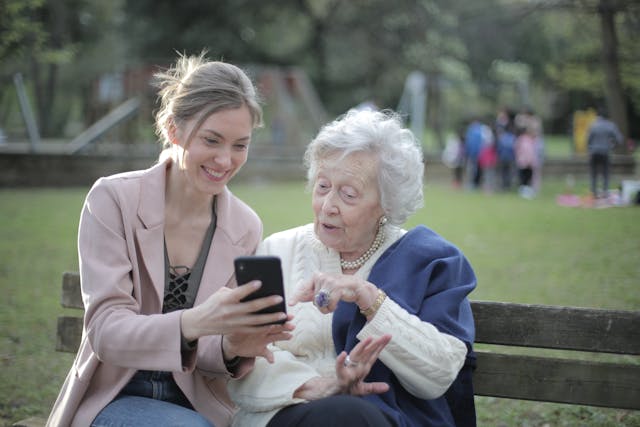The Ultimate Guide to Caring for Elderly Parents at Home
By hex.admin
September 23, 2024

As parents age, many adult children find themselves in the role of caregiver. Whether it’s due to declining health, mobility issues, or cognitive changes, caring for elderly parents at home can be a fulfilling yet challenging responsibility. The key to providing effective care is understanding your loved one’s needs, balancing your own life, and ensuring their safety and well-being. This guide will cover practical tips for caregiving at home, from home safety and emotional support to self-care and when to seek professional help.
1. Assessing Your Parent’s Needs
Understanding the level of care your elderly parent requires is the first step in planning their care. You may need to assess:
- Physical Needs: Does your parent have mobility issues, or do they need assistance with daily activities like bathing, dressing, or using the bathroom?
- Medical Care: Are they managing chronic conditions such as diabetes, heart disease, or arthritis? Do they need help with medication management?
- Cognitive Health: Is your parent showing signs of cognitive decline, such as memory loss, confusion, or difficulty following conversations?
Conducting a thorough assessment will help you determine how much time, effort, and external assistance may be required.
2. Home Safety Tips for Elderly Care
Creating a safe environment at home is critical to prevent falls and accidents. According to the CDC, one in four adults aged 65 or older falls each year, making fall prevention a priority for caregivers. Here are some ways to improve home safety:
- Install Grab Bars: Place grab bars in the bathroom near the toilet and in the shower to assist with stability.
- Remove Tripping Hazards: Clear clutter, secure loose rugs, and ensure that pathways are free of obstacles.
- Improve Lighting: Increase lighting in hallways, staircases, and bathrooms to help with visibility.
- Use Non-Slip Mats: Place non-slip mats in the bathroom and kitchen to reduce the risk of slipping on wet surfaces.
- Consider Mobility Aids: If your parent has mobility issues, equipment like walkers, canes, or wheelchairs may be necessary.
By making these adjustments, you can significantly reduce the risk of accidents and make your home more senior-friendly.
3. Balancing Work, Family, and Caregiving
Balancing the demands of caregiving with work and other family responsibilities is often one of the most difficult challenges caregivers face. It’s essential to establish boundaries and set realistic expectations. Here’s how to balance caregiving and your own life:
- Create a Schedule: Develop a caregiving routine that works around your job and personal responsibilities. Include time for meals, medical appointments, and personal care for your parent.
- Set Priorities: Determine which tasks are essential and which can be delegated to others. Don’t hesitate to ask for help from family members or professional caregivers.
- Talk to Your Employer: Some workplaces offer flexibility for employees who are also caregivers. This might include flexible working hours or the option to work from home.
Remember, caregiving can be emotionally and physically exhausting. Establishing a routine and leaning on your support system is vital to maintaining a healthy balance.
4. Emotional Support for You and Your Parent
Caring for an elderly parent can be emotionally challenging for both parties. Your parent may feel frustrated by their loss of independence, while you might experience guilt, stress, or burnout. Emotional support is crucial in these situations.
- Communicate Openly: Regularly talk with your parent about how they’re feeling. Let them express their concerns, frustrations, or fears, and offer your reassurance.
- Encourage Social Interaction: Loneliness and isolation can lead to depression in seniors. Encourage your parent to stay socially connected through phone calls, video chats, or visits with family and friends.
- Join a Caregiver Support Group: Support groups, both in-person and online, can provide a space to share experiences, learn coping strategies, and receive emotional support from others in similar situations.
- Practice Self-Care: Take time to nurture your mental and physical health. Whether it’s exercising, meditating, or simply taking a break, self-care is essential to prevent caregiver burnout.
5. Hiring Professional Help
Sometimes, despite your best efforts, caring for an elderly parent at home becomes overwhelming. It’s important to recognize when you need extra help, whether it’s part-time or full-time care. There are several options for professional caregiving support:
- Home Health Aides: Home health aides can provide assistance with daily tasks like bathing, dressing, and meal preparation. They can also help with medication management and monitoring health conditions.
- Nurses: For parents with more complex medical needs, hiring a nurse may be necessary. Nurses can provide medical care, administer medications, and monitor vital signs.
- Respite Care: Respite care offers temporary relief for caregivers. This allows you to take a break while ensuring your parent receives the care they need, either through in-home services or short-term stays at a senior care facility.
- Adult Day Care Centers: If you work during the day, adult day care centers offer a safe environment where your parent can receive supervision, social interaction, and participate in activities while you’re away.
Hiring professional help can lighten your load and ensure that your parent receives the best care possible.
6. Financial Considerations
Caring for an elderly parent at home can come with significant financial costs. Understanding your financial options and resources is crucial for long-term care planning.
- Medicare and Medicaid: These programs can help cover some medical expenses and in-home care services, depending on eligibility. Be sure to research the benefits and limitations of these programs.
- Long-Term Care Insurance: If your parent has long-term care insurance, review their policy to see what services are covered, such as home health aides, nursing care, or adult day care services.
- Veterans Benefits: If your parent is a veteran, they may be eligible for benefits through the VA, including in-home care and respite care.
- Family Contributions: In some cases, family members may pool resources to help cover the costs of caregiving. Open discussions about finances can help clarify expectations and ensure that everyone contributes fairly.
7. When to Consider a Senior Care Facility
While providing care at home is ideal for many families, there may come a time when moving your parent to a senior care facility becomes the best option for their health and well-being. Consider the following signs:
- Increased Care Needs: If your parent’s physical or cognitive condition deteriorates to the point where they require 24/7 supervision, a facility with trained staff may be the safest choice.
- Caregiver Burnout: If you are feeling overwhelmed, exhausted, or unable to keep up with caregiving tasks, it’s important to recognize that your well-being is just as important as your parent’s.
- Safety Concerns: If your parent’s mobility, memory, or behavior poses safety risks that cannot be managed at home, a senior care facility with specialized care may be necessary.
It’s a difficult decision to make, but choosing a senior care facility can provide peace of mind knowing your parent is receiving the care they need in a safe environment.
Caring for elderly parents at home is a journey filled with emotional and practical challenges, but it can also be a rewarding experience. By assessing your parent’s needs, making safety a priority, balancing your responsibilities, and seeking emotional and professional support, you can provide quality care for your loved one while maintaining your own well-being. And remember, asking for help—whether from family members, support groups, or professionals—is not a sign of weakness but of strength and commitment to providing the best possible care.



